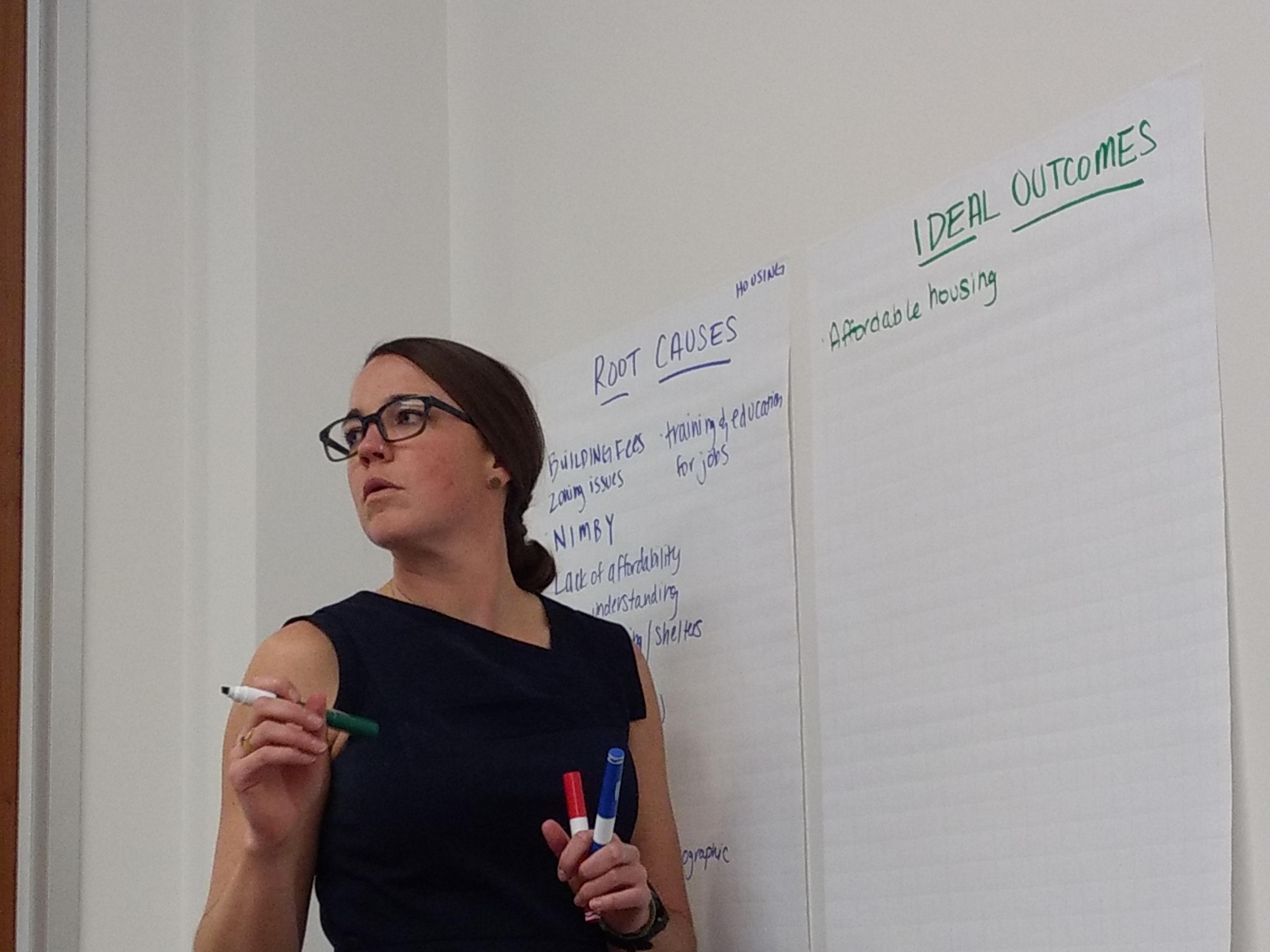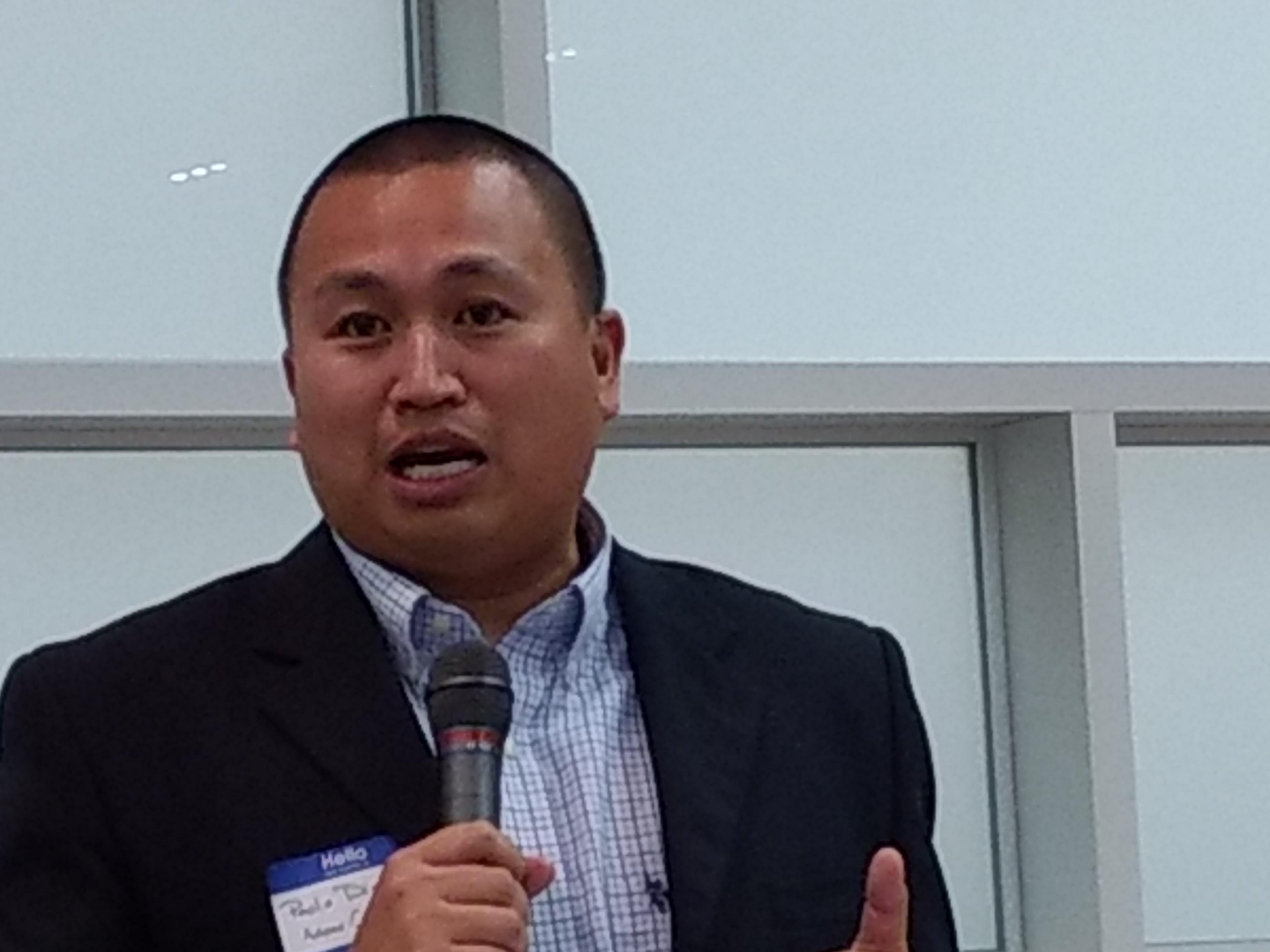Adams County Commissioner Eva Henry brought along a food stamp she’d saved from the days when she was a single mother in need of help.
Henry was among the speakers during a day of workshops addressing poverty in the communities just east and north of Denver. Her personal story helped bring home issues such as homelessness, wages that have not kept up with the costs of living and the threat that losing a job or falling seriously ill poses to families living on the edge.
“We’re doing a lot with homelessness,” Henry said, pointing to new projects to, for example, provide housing to support people coming out of homelessness.
Adams County also is opening a legal aid clinic that will serve tenants facing eviction, which can often lead to homelessness.
This in a region of small towns and bedroom communities where some might assume big city problems don’t exist.
“We’d like to think that,” said Brighton City Councilman JW Edwards, “But it’s not true by any means.”
His county is home to 500,000 people, 60,000 of whom are estimated to be living in poverty
Paolo Diaz, who took over this summer as the poverty reduction and neighborhood outreach manager for Adams County, organized the meeting. Diaz, whose position is fairly new, invited politicians, policymakers, academics and nonprofit and business executives. About 100 people attended the five-hour Community Leader Symposium on Poverty Reduction held in a county conference center.
Diaz was contemplative at the end of a day of briefings, brainstorming and plenty of opportunity for people to buttonhole him with advice and concerns. He said he would not make any immediate decisions about his course.
“The most important thing that we want, with finite resources, is to prioritize and figure out who the right partners are going to be,” he said.
During the symposium, a session on housing had been led by Caitlin Finn of the Colorado Poverty Law Project, Aubrey Hasvold of the Colorado Coalition for the Homeless and Jack Regenbogen of the Colorado Center on Law and Policy.

Hasvold said that according to the last point in time count, 466 people are experiencing homelessness in Adams County on a typical night. Hasvold said the point in time is imperfect, estimating that for every person counted on that night “at least three more people are experiencing homelessness who are invisible to us.”
She noted Adams County schools counted more than 3,600 students experiencing homelessness, many living with families who have doubled up in apartments to avoid living on the streets. That student count, Hasvold said, has tripled in the last 10-15 years and is higher than in any other county in Colorado, including Denver.
Hasvold pointed to possible solutions other cities have tried, including Denver’s social impact bond program. The Denver project involved raising funds from investors to allow Hasvold’s organization and the Mental Health Center of Denver to help people in long-term homelessness find homes and to provide the support to ensure they stay housed.
The Colorado Coalition for the Homeless also is pushing state legislators to set aside funds to build affordable housing, Hasvold said.
“We need an injection of capital in order to build (housing) units and make sure they’re affordable,” she said.
Incredulous murmurs could be heard when Finn and Regenbogen briefed participants on eviction law, noting that tenants served with an eviction notice in Colorado have just three days to fix whatever problem the landlord has raised. More murmuring greeted the news that an eviction effort that fails can stay on someone’s record for seven years, and that landlords often use such records as an excuse to refuse to rent.
Kathy Kvasnicka, a risk analyst for the town of Northglenn who was among the participants, said Monday’s sessions bolstered other efforts to raise awareness about the problems neighboring towns and unincorporated parts of Adams County cannot solve on their own. She said the first step was understanding “there’s a problem out there.
“It’s not a Denver problem. It’s an everybody problem.”
Henry, the county commissioner, spoke of a period 20 years ago when in a matter of weeks she lost her job, faced losing her housing and had to schedule major surgery for one of her two daughters after years of putting off treatment because she lacked insurance.
“I was always one paycheck away from being homeless,” she said.
With help — including food stamps — and perseverance she got back on her feet. When Henry decided to enter politics, it was because she felt that “nobody was lending their voice for people working harder for less.”














